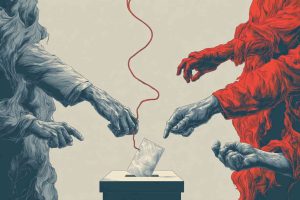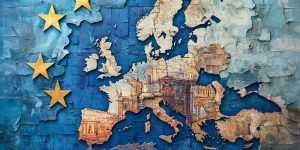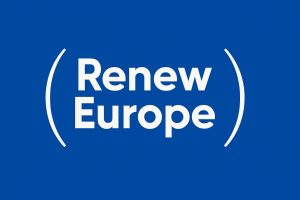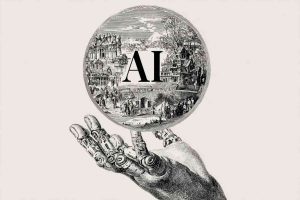The Hidden Power of Dutch Ministries: How Top Civil Servants Undermine National Interests and Dutch Citizens

The façade of democratic control
On paper, the Netherlands has a democratic system in which the government, made up of ministers, is responsible for running the country. Ministers are formally accountable for policy and must answer to parliament. In reality, this democratic oversight is largely a façade. Real power within Dutch ministries lies with a small elite of unelected top civil servants: secretaries-general, directors-general, and other high-ranking officials who often remain in position for decades and effectively determine the direction of the country.
According to research (De macht van ambtenaren, Bovend’Eert), ministries are increasingly functioning as autonomous centers of power, resistant to political correction. Ministers gradually become mere spokespersons and executors of policies crafted by civil servants.
How ministries operate as autonomous layers of governance
The rise of the administrative technocracy
Over the past decades, ministries have evolved into technocratic strongholds with their own policy agendas. Top civil servants are typically lawyers, economists, or public administration specialists who are strongly influenced by international networks, European directives, and consultation structures with large corporations and NGOs.
As the Dutch political scientist Paul ’t Hart noted in his analysis (Ambtelijke macht en publieke belangen, ’t Hart), a “professionalized policy class” has emerged, sidelining national politics. These civil servants present their policy options as “necessary” or “unavoidable, ” framing political alternatives as unrealistic or legally impossible.
Ministers as temporary figures
Compared to top civil servants, ministers are often political outsiders with limited knowledge of their department. They rely heavily on civil service advice and are frequently replaced after only a few years. This political turnover contrasts sharply with the continuity among senior bureaucrats, many of whom shape policy for decades.
As political scientist Johan Witteveen observed (Ministeriële verantwoordelijkheid in theorie en praktijk, Witteveen), this creates a situation in which civil servants no longer serve politics but instead force politics to serve the administrative apparatus.
Concrete examples of policy derailment
Migration and asylum policy: international treaties over national interest
Dutch migration and asylum policy is largely steered by international treaties such as the Geneva Refugee Convention, the European Convention on Human Rights, and UN frameworks (e.g., the Global Compact for Migration). Although these treaties allow for national interpretation, civil servants choose not to use that flexibility. Instead, they adopt extremely broad interpretations, turning the Netherlands into one of the most accessible asylum destinations in Europe.
According to research by the Dutch Research and Documentation Centre (Asielinstroom en verdragsverplichtingen, WODC), a large proportion of asylum seekers do not meet the Refugee Convention’s criteria. Still, ministries continue to implement overly generous policies that go against the interests of Dutch society.
Climate policy: ideology over economy
Dutch climate policy is another clear example of civil service steering. Policy goals are largely copied from the European Union and international climate bodies such as the IPCC, without proper national cost-benefit analysis.
The Dutch Court of Audit warned in its report (Kosten en effectiviteit van het klimaatbeleid, Algemene Rekenkamer) that Dutch climate measures are disproportionately expensive and have only a marginal impact on global emissions. Nevertheless, civil servants continue to push for drastic actions like shutting down farms, increasing energy taxes, and subsidizing costly technologies such as hydrogen and wind energy.
Nitrogen crisis: model-based policy without democratic debate
The so-called nitrogen crisis is largely a creation of bureaucratic policymakers who base decisions on theoretical models rather than facts. The RIVM nitrogen deposition model, which underpins policy decisions, contains significant uncertainties and errors. Yet ministries present this model as absolute and beyond dispute.
The Advisory Committee on Nitrogen (Niet alles kan overal, Remkes) acknowledged that nitrogen policy should be better aligned with economic and social realities. Still, civil servants selectively interpret these recommendations in ways that support their existing preferences.
Opaque networks and international influence
European and global agendas set the course
Many top Dutch civil servants participate in international bodies such as the European Commission, OECD, World Bank, and the UN. Through these networks, policy lines are coordinated and then automatically implemented in the Netherlands. This results in Dutch policies that were conceived in Brussels or Geneva, without any prior national debate.
As journalist Arno Wellens notes (Het Euro Evangelie, Wellens), these networks form a technocratic layer of governance that overrides national parliaments and citizens. Policy is no longer developed nationally but merely implemented nationally.
Close ties with lobby groups and NGOs
Beyond international institutions, ministries maintain close ties with lobby groups, consulting firms, and NGOs pursuing their own agendas. Notable examples include environmental organizations influencing climate and agricultural policy, and corporate actors shaping digitization and energy projects.
A report by Follow the Money (De onzichtbare macht van lobbyisten, FTM) reveals how companies and interest groups wield direct influence over bureaucratic policymaking through informal consultation channels. Citizens are excluded from the process.
The failure of democratic oversight
Parliament and media sidelined
The Dutch House of Representatives lacks the resources to effectively oversee bureaucratic power. MPs have limited staff and rely on the same ministries for information. Many reports and policy memos are only released after implementation or remain classified under the pretext of “internal deliberation.”
The media also rarely succeed in exposing these power structures. Journalists mainly have access to political figures, while the real policymakers remain anonymous. As investigative journalist Joris Luyendijk observed (Het zijn net mensen, Luyendijk), real power is invisible to the general public.
Ministries protect each other
Ministries balance and shield one another. Criticism of one department is often neutralized by support from another. This creates a closed administrative culture where self-reflection and external control are absent.
The Bosman Committee report (Versterking parlementaire controle, Bosman) concludes that a governance culture exists in which civil servants primarily focus on protecting the system instead of serving citizens.
Citizens foot the bill
Higher costs and less freedom
The consequences of this bureaucratic governance are tangible for the Dutch population. Citizens face rising costs due to climate measures, nitrogen policies, and EU contributions. At the same time, regulatory pressure increases and freedoms are curtailed under the guise of safety, health, or sustainability.
According to the Central Bureau of Statistics (Monitor brede welvaart, CBS), household purchasing power has been under pressure for years, partly due to government policies. Still, ministries continue to implement measures that further squeeze ordinary citizens.
Alienation from the political system
More and more Dutch citizens no longer feel represented by their government. The Netherlands Institute for Social Research reports (Burgerperspectieven, SCP) show that trust in government remains structurally low, largely due to the sense that policy no longer reflects the concerns and interests of ordinary people.
Conclusion: the Netherlands as a technocratic state
Over recent decades, the Netherlands has shifted from a parliamentary democracy to a technocratic state in which unelected civil servants determine the actual course. Ministers have become temporary actors in a permanent system that manages and protects itself. International treaties, lobby groups, and bureaucratic networks dictate policy, not the Dutch voter.
Unless these structures are fundamentally reformed, the Netherlands will remain a democracy in name, but a technocracy in practice. The question is no longer who governs the country, but why voters have so little say in it.


















